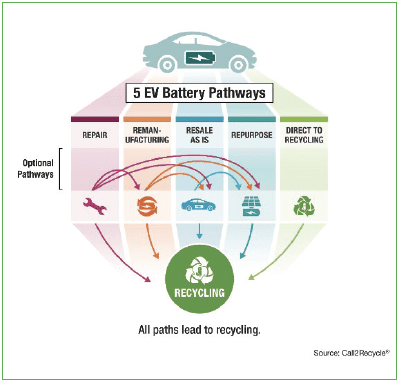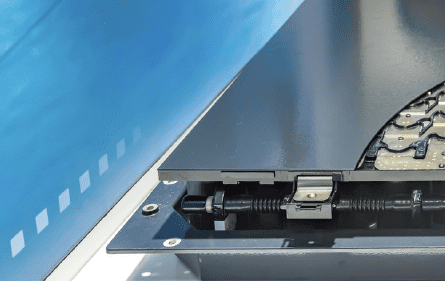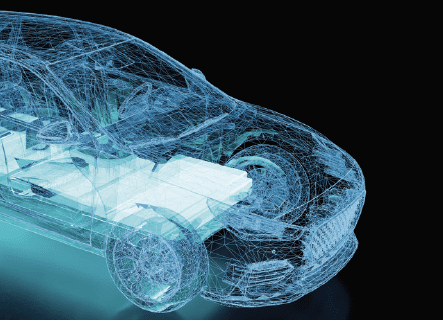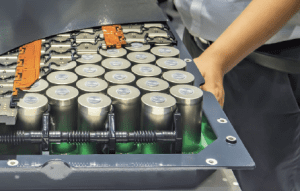The vital role of battery recycling in the future of Canada’s EV industry
Photos by/par Joseph Chung
With 30 years of experience in account management, Joseph Chung leads the dynamic account management team at Call2Recycle Canada. He spearheads the company’s programs that enhance awareness and accessibility to sustainable end-of-life battery recycling. A passion advocate for environmental impact, Chung drives Call2Recycle Canada’s eMobility and EV battery recycling initiatives, working alongside leaders in the automotive and battery recycling sectors. His efforts are critical in advancing comprehensive solutions for the rapidly growing Canadian electric vehicle industry, ensuring a greener, more sustainable future for generations to come.
The EV sector has experienced explosive growth over the past decade, and Canada is no exception. With government incentives, environmental awareness and technological advancements, EV adoption in Canada is soaring.
According to StatsCan, EV sales accounted for more than 15 percent of all new vehicle sales in Canada in 2024, and that number is projected to increase significantly in the coming years. This growth of battery electric vehicles is accompanied by an equally important focus on end-of-life management of the EV batteries.
Regardless of the route an EV battery takes—whether it’s repaired, remanufactured, resold as is, or repurposed for other uses—each pathway ultimately leads to the need for recycling. As of late, the recycling of electric vehicle batteries has seen significant advancements, with increased efforts to manage the lifecycle of these crucial components. The need for sustainable recycling solutions has never been more urgent as the Canadian automotive industry seeks to meet the rising demand of critical battery components while addressing both environmental and resource challenges.


SUSTAINING CANADA’S EV INDUSTRY IN THE LONG RUN
The principle of “circular economy” is particularly relevant when it comes to the EV battery lifecycle. Unlike traditional linear economies, which follow a “take, make, dispose” model, a circular economy focuses on reducing waste and reusing materials in a closed-loop system. This is crucial for EV batteries, which contain critical metals such as lithium, cobalt and nickel. As demand for electric vehicles rises, so does the need for these raw materials, which are limited and subject to supply chain pressures.
Lithium, for example, is expected to see increased demand over the next decade, with supply constraints becoming more pronounced. Even with global mining efforts ramping up, the global supply of lithium is limited and environmental concerns related to mining practices grow. Recycling EV batteries and their components helps mitigate these concerns by enabling the reuse of valuable metals, reducing reliance on virgin materials and ultimately enabling a more sustainable future. In fact, with lithium supplies expected to be strained, battery recycling is no longer a luxury but a necessity to ensure long-term stability in the EV market supply chain and to preserve critical natural resources.
Call2Recycle, Canada’s leader in battery recycling, is committed to providing comprehensive and sustainable EV battery recycling solutions to sustainably support Canada’s EV market growth for EV battery collection and recycling. Through ongoing partnerships with auto manufacturers, Call2Recycle has been selected to develop and administer a pioneering, industry-led solution for the recovery of EV batteries in Quebec.
This first-of-its-kind program in North America brings together participating auto manufacturers and industry to implement efficient processes for eligible battery recovery that complement auto manufacturer’s existing EV battery recovery and management practices.
Collaboration between Call2Recycle and participating auto manufacturers, industry associations and key players within the automotive ecosystem, along with programs already in place, ensures that all aspects of the EV battery lifecycle, from production to end-of-life, are addressed in a holistic and responsible manner. By working together, stakeholders can identify and implement solutions that reduce environmental impact, optimize recycling processes, and promote a circular economy. Through shared knowledge and expertise, this industry-led program aims to make EV battery recycling more efficient, accessible, and sustainable for all.


ENSURING A SAFE AND EFFICIENT EV BATTERY RECYCLING PROCESS
 While the environmental benefits of Call2Recycle’s EV battery recycling solutions are clear, safety is more paramount than ever when dealing with these increased numbers of high-voltage batteries in the market. Lithium-ion batteries, commonly used in electric vehicles, can be highly reactive and can pose risks if not handled properly. These batteries can catch fire or explode if damaged or improperly disposed of, posing a hazard to both workers and the environment.
While the environmental benefits of Call2Recycle’s EV battery recycling solutions are clear, safety is more paramount than ever when dealing with these increased numbers of high-voltage batteries in the market. Lithium-ion batteries, commonly used in electric vehicles, can be highly reactive and can pose risks if not handled properly. These batteries can catch fire or explode if damaged or improperly disposed of, posing a hazard to both workers and the environment.
Proper safety protocols and handling procedures are essential to mitigate these risks. Call2Recycle strives to lead battery safety innovation by investing in rigorous safety measures, from giving recommendation on EV batteries storage to safely managing EV battery collection, transport and recycling.
Call2Recycle’s program stands out for the full-service approach it offers: from consumer drop-off locations for spent batteries to high-level logistics and its extensive network for the recycling process. This complete solution empowers Canada’s automotive industry and Canadian consumers alike to contribute to a cleaner environment while supporting the growth of the EV market. The future of Canada’s electric vehicle industry is bright, but to ensure that this growth is sustainable, we must prioritize EV battery recycling. A strong circular economy is essential to this effort, not only to conserve valuable resources but to mitigate the environmental impact of mining and disposal.
Safety and collaboration are the cornerstones of this transition, and partnerships between organizations like Call2Recycle, automakers, and other pillars of the EV supply chain are key to ensuring a greener, more sustainable future for the industry.
As industry leaders and consumers, we all have a role to play. We must actively support and engage with recycling programs, promote responsible disposal, and encourage ongoing innovation in EV battery recovery. Together, we can accelerate the transition to a circular economy and make a lasting positive impact on our planet.


























